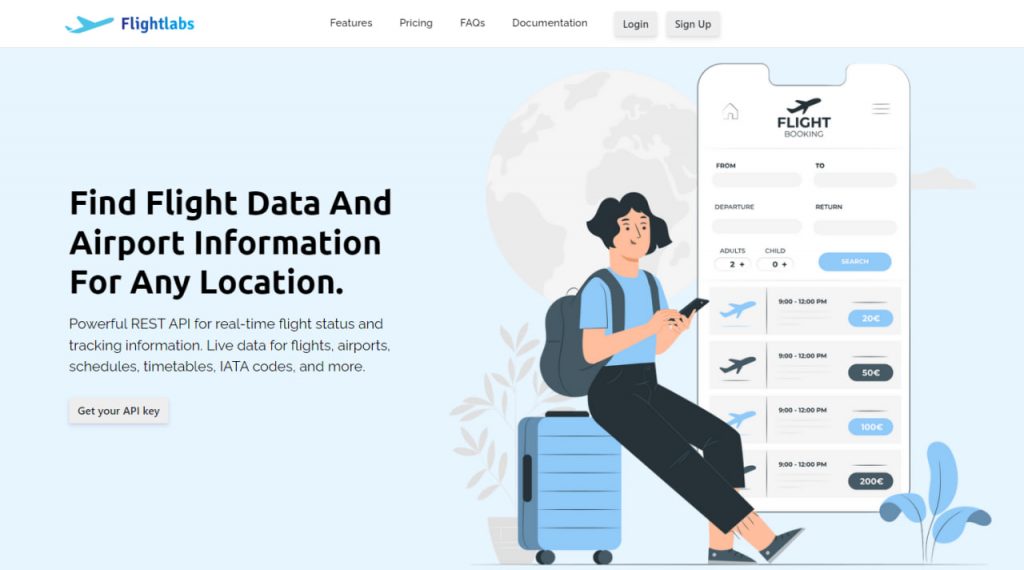In today’s fast-paced and interconnected world, the aviation industry plays a crucial role in global travel and transportation. Airlines strive to provide reliable and efficient services to passengers, and one key factor in achieving this goal is accurate and up-to-date data. This is where Application Programming Interfaces (APIs) come into play, revolutionizing the way airlines operate and optimize their performance. In this article, we will explore the advantages of APIs, with a particular focus on their ability to provide accurate data to enhance airline operations.
APIs serve as the bridge between different software systems, enabling them to communicate and exchange information seamlessly. Airlines rely on a vast amount of data to manage their operations, including flight schedules, availability, pricing, reservations, and more. Traditionally, this data was managed through complex and isolated internal systems. However, with the advent of airline APIs, businesses can now access accurate and real-time data from various sources, leading to a multitude of benefits.
We recommend FlightLabs because it’s a flexible airline API that has the potential to improve the customer service provided by any business that deals with the travel industry.

What Are The Benefits Of This API?
As the aviation industry continues to evolve, APIs will play an increasingly pivotal role in shaping the future of airline performance optimization. FlightLabs is one of such APIs, and it enables the exchange of flight-related information between various stakeholders, such as airlines, travel agencies, airports, and third-party service providers. Let’s explore the key advantages that FlightLabs brings to the table when it comes to optimizing airline performance.
- Real-time Flight Information: One of the primary advantages of FlightLabs is the ability to access real-time flight information. Airlines can retrieve live data on flight schedules, delays, cancellations, and gate assignments, empowering them to provide accurate and up-to-date information to passengers. This level of transparency builds trust and enhances the overall customer experience. Additionally, airlines can use this real-time data to optimize operations, streamline crew scheduling, and respond proactively to any disruptions, minimizing the impact on passengers.
- Streamlined Booking Process: FlightLabs enables airlines and travel agencies to integrate their booking systems with third-party platforms and metasearch engines. This integration allows for a seamless and efficient booking process, as travelers can access real-time flight availability, pricing, and seat inventory. By making this information readily available, airlines can attract more customers and increase their online visibility, ultimately driving higher bookings and revenue.
- Efficient Operations and Reduced Workload: For travel agencies, manually collecting and updating flight information can be a time-consuming and error-prone task. By integrating FlightLabs, agencies can automate the process of gathering and updating flight data, saving valuable time and resources. The API ensures that the app always provides the most accurate and up-to-date information, reducing the workload on agency staff and minimizing the risk of errors or inconsistencies.
How Does This API Work?
FlightLabs offers a comprehensive set of endpoints that cover airline information such as name, IATA number, logo, and airport status and coordinates. Furthermore, it provides current and accurate flight data, allowing users to search for flights based on different criteria, such as flight number, origin, destination, and date.
With its support for multiple programming languages and easy integration with existing systems, FlightLabs is a dependable and user-friendly airline API. As an example of the API’s capabilities, users can use the API to get information on flights scheduled 7 days in the future, this is achieved by entering the desired date along with the proper IATA codes and the API key. The raw output looks like this:
{
"data": [
{
"weekday": "5",
"departure": {
"iataCode": "lax",
"icaoCode": "klax",
"terminal": "9",
"gate": "E",
"scheduledTime": "10:00"
},
"arrival": {
"iataCode": "jfk",
"icaoCode": "kjfk",
"terminal": "9",
"gate": "F",
"scheduledTime": "19:35"
},
"aircraft": {
"modelCode": "a340",
"modelText": "airbus a340-300"
},
"airline": {
"name": "american airlines",
"iataCode": "aa",
"icaoCode": "aal"
},
"flight": {
"number": "255",
"iataNumber": "aa255",
"icaoNumber": "aal255"
}
},
[...]
]
}How Can I Get This API?
APIs such as FlightLabs have emerged as a game-changer in the aviation industry, providing airlines with accurate and real-time data to optimize their performance. The advantages of APIs are numerous, ranging from offering up-to-date flight information, enabling real-time decision-making, enhancing revenue management, fostering collaboration, and driving innovation. As airlines continue to embrace digital transformation, FlightLabs will undoubtedly play an important role in shaping the future of airline operations and passenger experiences. You can try out this API by following these instructions:

- Create an account at FlightLab’s site. Then select your desired endpoint or enter the IATA or ICAO code of airports or airlines.
- Use these codes and then call the API. You can get a unique API key on your account dashboard.
- Finally, press the “Run” button and you’re ready! The API response will be on your screen. You can also choose a programming language.

